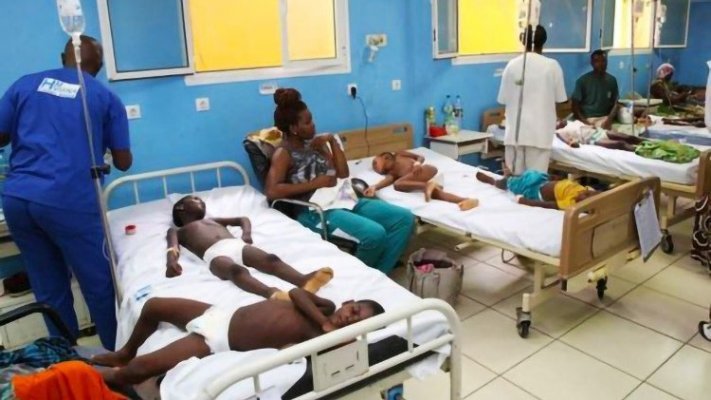“It is important to highlight here that the COVID-19 pandemic has had a negative impact on all health systems. No exception. From developed countries to least developed countries, with this situation, there has been a significant decline in vaccination coverage,” he explained.
The Angolan government official spoke to Lusa on the sidelines of her participation in the Euro-African Forum, an initiative of the Portuguese Diaspora Council Association, which was held on Monday and Tuesday in Carcavelos, on the outskirts of Lisbon.
Sylvia Lutucuta was responding to a report released on Monday by the World Health Organization and UNICEF that placed Angola among the 10 countries that vaccinated the fewest children against diphtheria, tetanus and pertussis in 2023.
The estimates from the two UN agencies relate to national coverage of childhood vaccination, and also highlight that, with regard to measles, Angola is also one of the countries with the lowest coverage rate, at only 50%.
“Angola, within the context of this situation, has implemented the vaccination coverage recovery plan that it has been working on since June last year, with the support of Gavi, the Vaccine Alliance. [Aliança Mundial de Vacinas]“We have restored vaccination coverage,” highlighted Sylvia Lutukota.
He added: “It is also important to emphasize here that our country is already classified as a middle-income country, and because it is a middle-income country, it loses the support that most developing countries enjoy, especially with regard to access to vaccines.”
The Angolan Minister highlighted the Angolan government's efforts to overcome the restrictions caused by the pandemic and become a middle-income country.
“We must also appreciate the efforts made by the Government of Angola for about eight years to obtain vaccines (…), which are purchased or obtained with regular resources from the Treasury. [dinheiros públicos angolanos] “We have done everything we can to make sure that we do not want to have children without a dose in our country and to continue the vaccination process,” he said.
We are confident that the upcoming reports [da ONU] “They will be much better off” in the image they will paint of Angola.
Regarding the recent alert issued by the World Health Organization regarding the registration of cases linked to a new epidemic outbreak of monkeypox (Mpox, in its English acronym) in the neighboring Democratic Republic of the Congo, Sylvia Lutoka referred to the emergency plan maintained by the Angolan authorities in the lesson.
“Since the World Health Organization issued an international alert about the emergence of monkeypox in many countries, not only in Africa, but there were also cases in Europe and now in the African region, in our SADC region [Comunidade de Desenvolvimento da África Austral]“We have quickly implemented our emergency plan, with very strong epidemiological and laboratory surveillance measures, and education of our population,” he said.
The Angolan official also highlighted training activities for border control officials as well as for the population so that, in the event of symptoms similar to those of monkeypox, they can go to health centres.
On July 5, the Angolan Ministry of Health reaffirmed that the country had not recorded any cases of smallpox, after testing a suspected case, while continuing to monitor the disease situation in neighboring countries.
Monkeypox is a virus transmitted to humans from monkeys and rodents and is characterized by fever, headache, fatigue, muscle pain, and a generalized rash (skin lesions), and has an incubation period of five to 21 days.

“Wannabe internet buff. Future teen idol. Hardcore zombie guru. Gamer. Avid creator. Entrepreneur. Bacon ninja.”

